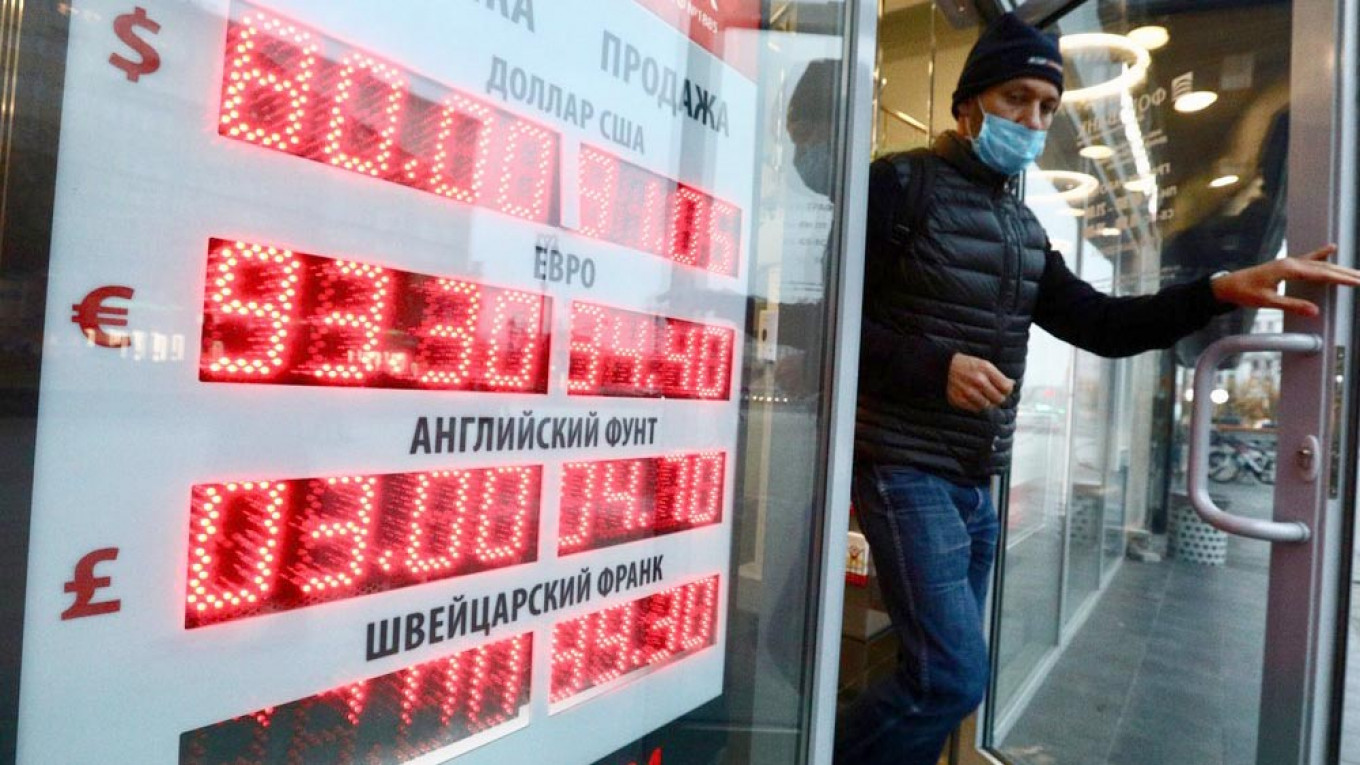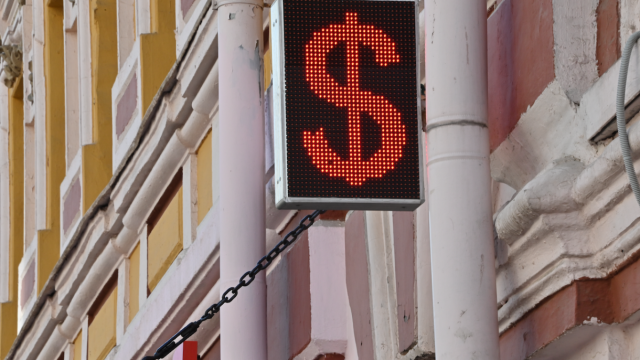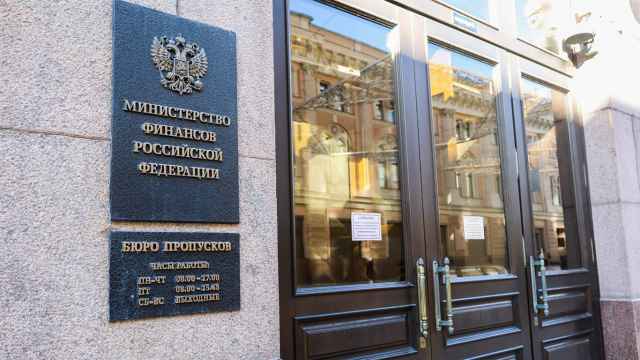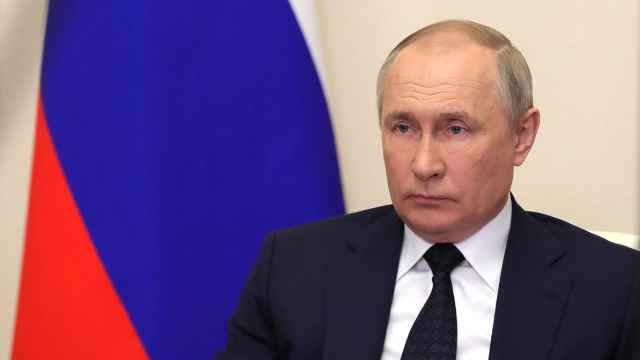The Russian ruble continued to slide Tuesday, falling to its lowest level against the U.S. dollar since the beginning of February amid the ongoing war of words between the Kremlin and western governments.
The currency dropped by more than 2% during trading Tuesday morning at one point to hit a session low of 76.3 against the dollar — its weakest level since Feb. 1. It also slid to a four-week low against the euro of 90.6 before recovering slightly.
The ruble is down almost 5% in the space of a week following U.S. President Joe Biden’s controversial comments that he agrees Russian President Vladimir Putin is a “killer.”
Falling oil prices also put pressure on the ruble Tuesday, although as they have now recovered to pre-coronavirus levels while the ruble is down more than 20%, analysts say the Russian currency is moving in line with geopolitical developments and heightened fears of fresh western sanctions, rather than underlying fundamentals.
“Much like the proverbial Potemkin village, the ruble appears robust on the outside but has been surprisingly easy to knock over,” Oliver Harvey, macro strategist at Deutsche Bank wrote in a recent research note on the currency.
Speaking Monday, Putin’s spokesman Dmitry Peskov said Russia could not rule out being blocked from the Swift international payments systems.
Analysts at both Sberbank and Sova Capital estimate the currency’s “geopolitical risk premium” at above 10% — implying were Russia not at risks of sanctions, the currency would be trading at around 70 against the U.S. dollar.
Despite Biden’s comments, sanctions watchers still do not expect the U.S. to introduce particularly tough measures against Russia, such as a ban on U.S. entities trading Russia’s government bonds.
Investment bank BNP Paribas, for instance, puts the likelihood of “market-moving sanctions” being introduced at under 15%.
Western governments have so far responded to the poison attack and imprisonment of Alexei Navalny by levelling fresh personal sanctions — travel bans and asset freezes on Russian officials deemed to be involved in the case — rather than harder-hitting measures against the Russian economy.
A Message from The Moscow Times:
Dear readers,
We are facing unprecedented challenges. Russia's Prosecutor General's Office has designated The Moscow Times as an "undesirable" organization, criminalizing our work and putting our staff at risk of prosecution. This follows our earlier unjust labeling as a "foreign agent."
These actions are direct attempts to silence independent journalism in Russia. The authorities claim our work "discredits the decisions of the Russian leadership." We see things differently: we strive to provide accurate, unbiased reporting on Russia.
We, the journalists of The Moscow Times, refuse to be silenced. But to continue our work, we need your help.
Your support, no matter how small, makes a world of difference. If you can, please support us monthly starting from just $2. It's quick to set up, and every contribution makes a significant impact.
By supporting The Moscow Times, you're defending open, independent journalism in the face of repression. Thank you for standing with us.
Remind me later.






